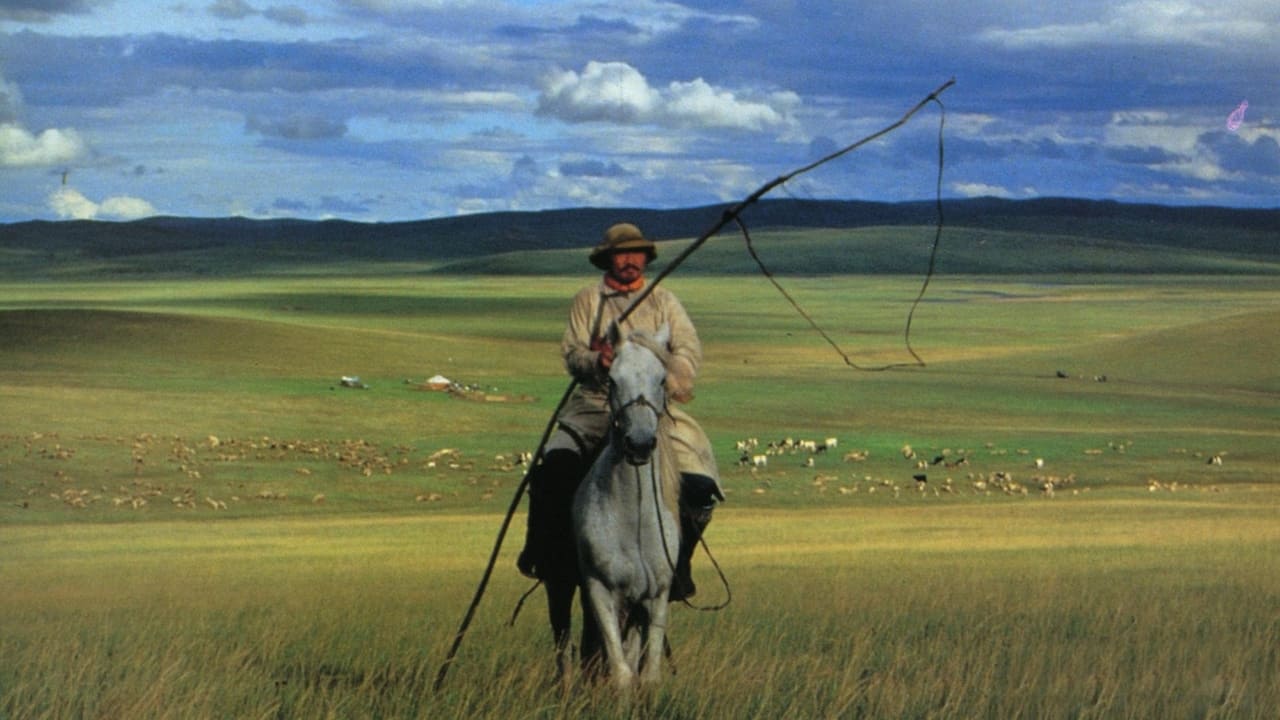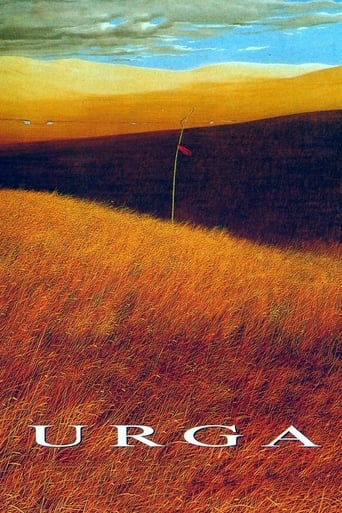

Sadly Over-hyped
... View Morerecommended
... View MoreThe film makes a home in your brain and the only cure is to see it again.
... View MoreExcellent characters with emotional depth. My wife, daughter and granddaughter all enjoyed it...and me, too! Very good movie! You won't be disappointed.
... View MoreIt is a part of Inner Mongolia which seemed to be cut out from the outside world. But the city-bred Pagma is trying to resist the advances of her husband Gombo out on the plains. It would turn out that the married couple has three children, while Chinese law (which Inner Mongolia is part of China) limits Mongolian families to two children.There are also signs of modern influences in the hut the family lives in, even if Gombo raises sheep, cattle and horses, leading the live of a typical Mongolian nomad. A generator for electric light in the hut, Gombo's son wearing a baseball cap, his daughter who plays an accordion which was given to her by an uncle who lives in the city, the neighbour who seems to be drunk most of the time whenever Gombo and Pagma sees him who gives them a movie poster and swearing that it looks like his brother in America which actually shows Sylvester Stallone in Rambo.Gombo's seemingly normal life would be disrupted when he rescued Sergei, a Russian construction worker building the transcontinental road in Mogolia where his truck went to the edge of a lake. After initial awkward exchanges which happened at the hut when Sergei initially wondered what to do with the sheep which Gombo had killed and skinned, the two men from very different backgrounds began to feel at ease with each other.But there is also Pagma who had told Gombo to go to the city to get a television set and some condoms, other than Sergei wondering why he has to work outside of Russia while trying to get to grips with the demise of the Russian soul at a nightclub in the city with a fellow compatriot, which came at a time when the Soviet Union has already collapsed. Even with the unlikely friendship, there is the constant juxtaposition of what the intrusions of the modern age has in store for the two men who wants to cling on to their respective identities.It is not a film to understand easily on the surface as it forces to look at one's own identity as it connects with the world around him/her, but there are also the comic elements in the film like in the form of the drunken neighbour of Gombo and Pagma to provide the comic relief.For those who may be unaware of the various references shown and mentioned throughout the film, it can seem confusing at times, even towards the ending. But it is a reminder of how there are times when one wants to move forward with the times, there always seemed to be something holding one back reminding one's own identity in the first place.
... View MoreOne of the most beautiful and lyrical films that I have ever seen, one of those experiences where you walk into a theatre not knowing what to expect and walk out of the theatre wanting to drag everyone you've ever known into the theatre to see it.I can't imagine why this Oscar-nominated film is not available on DVD but it's well worth your annual haul-out-the-VHS-player-one-more-time weekend look. At first you'll feel like you're eavesdropping on something very private, but by the end of the film you may wish that you were one of the family.I don't' like to give away plot points when commenting on a movie, in fact I don't even like to watch previews-of-coming-attractions because they give away too much of the story. I like to walk into a movie blind, and trust me on this one, you'll be glad you made the journey.
... View MoreThe best definition I can give to movies I greatly admire is that they take me someplace I don't expect to go.It can be a special location. It can be a special moment. It can be a special revelation.Close to Eden, as this movie has been titled in the United States, offers the entire combination. A 1992 Russian nominee for the Oscar for Best Foreign Language Film, the movie opens on the vast grassy expanses of the steppes of Mongolia, where the setting initially is evocative of a certain timelessness. The historical instant cannot be ascertained confidently, even within an error margin of a few centuries. Nor do we know what the movie designs ultimately to tell us.Such uncertainty begins to give way as a vehicle and visitor enter the scene and are involved in a mishap that results from first sleepiness and then fright. The nature of the vehicle and visitor narrow the reference era to an accuracy level of mere decades. From there, the plot leads to a likable nuclear family of herders, to which a grandmother is attached. We follow their story and soon learn when, among the vast expanses of time, it occurs.The theme here is subtly...ecological...in three parts. The first part concerns the lifestyle of the family, and its self-sufficiency. The second part concerns the travel the father undertakes, and the reason for the travel, an assigned errand he seeks to accomplish in the course of that journey. The third part concerns the conclusion, where the issue of time again intervenes. There is in fact no timelessness, but rather its passage. The narrator in A River Runs Through It is "haunted by waters." Similarly, the ending of Close to Eden is haunted by grasses. Its status as one of the great foreign films arrives in the last few knockout minutes.
... View MoreThe film's closing stretch provides one of the most memorable depictions of creeping dysfunction as the family sits in front of the TV, watching either Bush-Gorbachev, or else not much of anything, with their Stallone "Cobra" poster propped up behind the TV. That aside, the movie's theme of lost innocence and cultural decay is perhaps a bit overdone (although not as overdone as the English title imposed on the movie would suggest) - indeed, there's almost nothing else to the film except somewhat ponderous - if inherently spectacular - shots of landscape and documentary-style observation, offset by the boisterous intrusion of the lost Russian (who in his drunken escapades brings it as close to a knockabout comedy as conceivable) and strange, strenuous fantasy sequences that drive home the notion of futile ambition, but are too contrived for comfort. Despite all reservations though, the movie often transcends mere exoticism - their early morning discussion about condoms for example is touching and convincing. as well as faintly surreal (from a Western perspective). The film suggests that traditionalism and modernity CAN actually coexist, which makes their failure to do so all the more poignant; the only way to make sense of the closing voice over is to conclude that it comes from the future, underlining the picture's sense of dislocation.
... View More